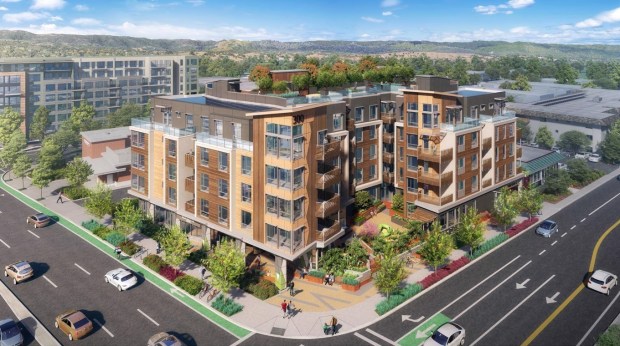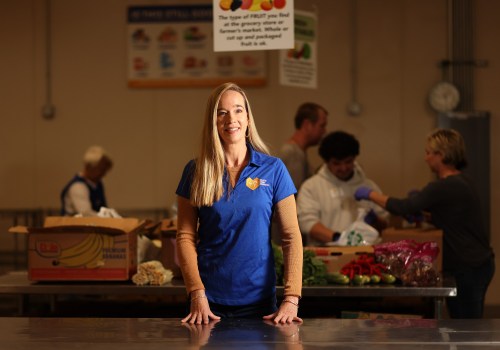Three California ballot measures could go either way with less than two weeks before the election, according to a new survey, while two prominent propositions face uphill battles and tough-on-crime Proposition 36 continues to receive a strong majority of support.
Proposition 34, an electoral oddity backed by landlords seeking to choke off funding for rent-control crusader the AIDS Healthcare Foundation, had 47% of likely voters in support, according to the Public Policy Institute of California, which surveyed 1,137 likely voters Oct. 7-15. Forty-nine percent said they would vote no, and with an error margin of +/-3.7%, the measure’s fate hung in the balance.
Also teetering between passing and failing was Proposition 5, to amend the state constitution and make it easier to approve local infrastructure and housing bonds for low- and middle-income Californians — through a 55% vote by a local electorate, instead of the current two-thirds. The PPIC’s survey showed 48% approval and 50% opposition. Supported by the California Democratic Party, the AFL-CIO and California Labor Federation, Proposition 5 is opposed by the California Chamber of Commerce, the Howard Jarvis Taxpayers Association and the California Republican Party.
Proposition 2, to authorize $10 billion in bonds for repairs, upgrades, and construction at public K–12 schools, community colleges, and technical-education career programs, remained uncertain, too, as the Nov. 4 election nears. Fifty-two percent of likely voters said they would vote yes, while 46% said they would vote no. The measure has the support of the California Democratic and Republican parties, the California Chamber of Commerce, and the California Federation of Teachers, while it is opposed by the Howard Jarvis Taxpayers Association.
When surveys reveal measures are roughly even in support, the result can depend on election turnout, along with what closing arguments voters may hear or read from the yes and no campaigns, or from trusted friends, family members and political figures, said Mark Baldassare, statewide survey director at the PPIC.
“Unlike partisan candidate races it’s relatively easy for people to change their minds, particularly to vote against something because voting against something is voting for the status quo,” Baldassare said.
Two high-profile measures, Proposition 32 to raise the minimum wage to $18 from $16, and Proposition 33 to expand local governments’ ability to impose rent control, had supporter numbers well below 50%. Forty-four percent of survey respondents said they would vote to boost the minimum wage, and 42% percent said they would vote for broadened rent control.
“For measures that are below 50% it’s an uphill battle,” Baldassare said, adding that convincing voters to reconsider their position and support a measure instead of opposing it is often challenging.
Survey results showed opposition to the minimum-wage hike and the rent-control expansion at 54%.
Proposition 36, to roll back criminal justice reforms and harshen penalties for some theft and drug crimes, appears to enjoy huge support among likely voters, with 73 percent saying they would vote yes, and 25 percent saying they would vote no.
Under the initiative, a person with two prior theft convictions could be charged with a felony regardless of the stolen property’s value. The plan would also impose jail or prison for repeat drug possession, which could be avoided if an accused person agreed to drug treatment.
U.S. Department of Justice figures show that as of the end of 2023, property crime continued to trend downward over the past decade in the nine Bay Area counties, except for Alameda County. Statewide, the property crime rate has fallen more than 14 percent.
But a PPIC analysis of California Department of Justice figures also shows that from 2019 and 2023, shoplifting increased by 28 percent, with 90 percent of the surge occurring in Alameda, San Mateo, Los Angeles and Sacramento counties.
Opponents argue that Proposition 36 would lead to mass incarceration, while supporters claim official property crime data is unreliable because so many lower-level thefts go unreported.
Read More:-
- Lotto ticket worth more than $226,000 sold at Mountain View convenience store
- California has 13 of the most unaffordable small US cities
- Larry Magid: Summit at Oxford focuses on Generative AI regulations
- Roblox to enact child-safety changes giving parents more control
Despite the apparent wide gulf favoring passage of Proposition 36, it is not a slam dunk, Baldassare said. “It’s always possible that if there’s a concerted effort among the opponents to raise doubts and questions about something that people support,” Baldassare said, “the bottom can fall out of the support.”
Note: Thank you for visiting our website! We strive to keep you informed with the latest updates based on expected timelines, although please note that we are not affiliated with any official bodies. Our team is committed to ensuring accuracy and transparency in our reporting, verifying all information before publication. We aim to bring you reliable news, and if you have any questions or concerns about our content, feel free to reach out to us via email. We appreciate your trust and support!




